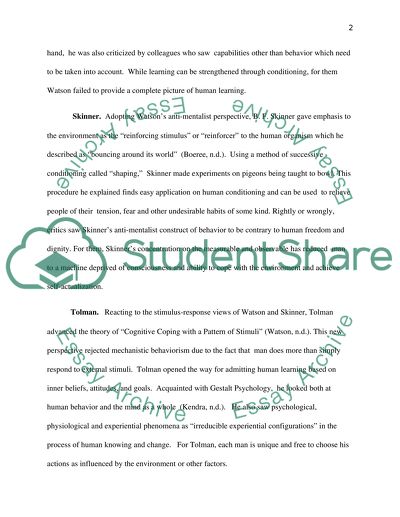Cite this document
(“Perspectives within Behaviorism in Psychology Research Paper”, n.d.)
Retrieved from https://studentshare.org/psychology/1397119-perspectives-paper
Retrieved from https://studentshare.org/psychology/1397119-perspectives-paper
(Perspectives Within Behaviorism in Psychology Research Paper)
https://studentshare.org/psychology/1397119-perspectives-paper.
https://studentshare.org/psychology/1397119-perspectives-paper.
“Perspectives Within Behaviorism in Psychology Research Paper”, n.d. https://studentshare.org/psychology/1397119-perspectives-paper.


